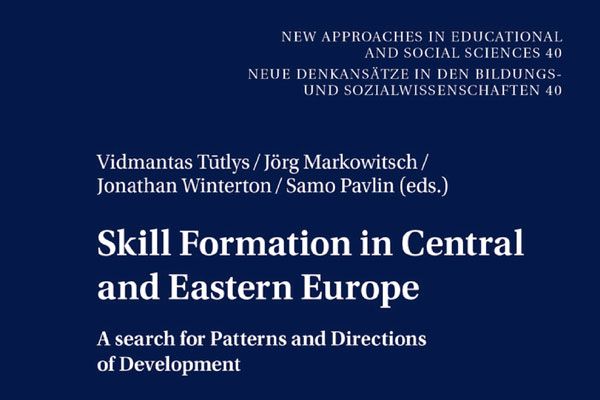Notifications list
Chapter “Croatia: impact of Europeanization on skill formation“ was published in the book “Skill formation in Central and Eastern Europe: A search for Patterns and Directions of Development“
Published: 30.08.2022.

In the book “Skill formation in Central and Eastern Europe: A search for Patterns and Directions of Development“, published by the international publishing house “Peter Lang”, Teo Matković, along with Nikola Buković, published a chapter titled “Croatia: impact of Europeanization on skill formation“.
The 18-chapter edited volume by Vidmantas Tutlys, Jörg Markowitsch, Samo Pavlin and Jonathan Winterton offers a holistic analytical insight into skill formation processes and institutions in Central and Eastern European countries by referring to the timeframe of historical development of skill formation from the fall of communism to the present time and future development trends.
In the chapter titled “Croatia: impact of Europeanization on skill formation“ Teo Matković and Nikola Buković elaborate how Europeanization fits in the current institutional state of the Croatian skill formation regime, qualified as ‘predominantly statist, with partial collectivism in training for occupations in skilled trades’. The text provides outlines of demographic and industrial context, followed by a depiction of linkages between the education system and labour market. The main features of the social partnership and its role in functioning of the national skill formation system are also explored. The chapter contains two important case studies on Europeanization in the national system: on development of apprenticeship schemes and introduction of the national qualification system. Both indicate that the role of Europeanization can be understood as the one of a “great accelerator”. On one hand it pushes policymakers to ‘play catch-up’ with more developed member states, while on the other functions as a repository of (re)usable policy ideas and source of funding to back up their implementation. However, institutional change remains sluggish, as layering, rather than displacement, represents the dominant mechanism of institutional change in the Croatian skill
formation system. This can be interpreted by three lines of argument: i) path dependence, creating a dominant position of the central state in early 1990s, which was not coupled with adequate policymaking capacity; ii) lack of interest, capacity and ambition of non-state actors to assume more prominent role and iii) structural factors, primarily protracted abundance of qualified labour force, hindering employers’ investment in innovation and human capital.
